IN THIS EPISODE:
- How Kyl grew his martial arts business through organic marketing, primarily via word-of-mouth referrals
- The link between Imposter Syndrome and martial arts studio’s pricing strategies
- Why martial arts school owners often undersell themselves and encounter growth challenges
- Key areas to prioritize in your martial arts school beyond the curriculum
- The history behind their martial arts school's empowering slogan, ‘Back Yourself’
- And more
*Need help growing your martial arts school? Start Here.
TRANSCRIPTION
Hey, it's George Fourie. Welcome to another Martial Arts Media™ Business Podcast. Today I am interviewing one of our great clients, one of our members of our Partners community, Kyl Reber. Kyl is from Brisbane. Chikara Martial Arts. You can look them up.
And this interview is a bit of an extension from the Partners Intensive, which is an event that we hosted here on the Sunshine at the beginning of June. And Kyl was one of the featured speakers talking about the things that they are doing in the community.
And what is mind-blowing for many other school owners is Kyl and his team, they're just pushing past the 370-member mark. And at this point, they've only focused on organic marketing strategies.
It's all about community. It's all about giving back. It's all about the things that they do in their school and the impact that they make within their community.
And so I wanted to get Kyl on and dig a bit deeper, talk a bit more about the strategies, what they do.
And the great thing is I've been working with Kyl for a little more than six months, and I haven't really tapped into that backstory about how he got started on this journey when they opened their school, what got him into martial arts and so this was a great opportunity for that.
So jump into the episode. All the show notes and resources are on our website, martialrtsmedia.com/145.
That's the numbers one, four, five. Head over there and download the transcript and resources. That's it. Let's get started. Jump in.
GEORGE: Mr. Kyl Reber, welcome to the Martial Arts Media™ Business podcast.
KYL: Thanks, George. Thank you for having me. It's a pleasure and an honor to be here.
GEORGE: Awesome. Long time coming.
KYL: Long time coming. Third time lucky.
GEORGE: Third time lucky. Hey, so thanks for jumping on. I'm really excited about this conversation and what I'm excited about is I've known you for a little while, we've been working together for a little while and I haven't really tapped into the back story of you and how everything came about.
So I'm really excited to chat about that and just witness a lot of the things that you're doing in your school and how you approach things differently. But first up, I always like to kick off this being … We always talk about marketing and attract, increase, and retain strategies.
If you have to share, what is the one thing, your go-to strategy that's helped you grow the school the most, generated the most students, strategy that you always lean on, that you always go back to and repeat over time?
KYL: I guess our biggest strategy or our biggest way of generating business is it always has been referral. But I guess if you were to put that into a strategy, a strategy is our image and our standing in the community.
Because if we have a good image standing in the community and members come to join, they're very quick to refer to other people that they know about what we do. You and I have had conversations in the past about Facebook marketing and all that sort of stuff.
Without sounding arrogant, that's still quite foreign to us. And I guess we've been very lucky that we're able to build the club to where it has gotten purely by just referral, word of mouth. We'll have whole families train. We have people very willingly wanting to involve themselves more in what we do externally.
So I think, referral has been always something that's been very good for us to lean on, and it's something that's very important to us. Our culture and community are the real backbone of what we do.
It's something that we've really strived to, I guess you'd say protect. As every club has, we've had people come in the past over the years that haven't been fit for that culture and community and we've had to have conversations about maybe this isn't the place for you because it's such a strong thing that works so well for us and it's continuing to work.
We essentially from an advertising point of view, it's only in the last 12 months that we are really starting to look at Facebook ads and formal advertising. Prior to that, it was just community.
GEORGE: I love that. I think it would help just for listeners, the context of where you're at in the business because for most guys to get to the level of growth that where you're at, it's taken some substantial advertising, investing in Facebook marketing, etc. So where are you currently at with student numbers?
KYL: Student numbers we're hovering around probably … I think we're probably, as of this week, we're sitting around that 360, 370 mark. We've had some really great growth this year.
But I think the thing for that is we've also had years where we've grown quite slowly. But our numbers are very good. We're really focusing this year on our community and our culture and it works for us.
But yeah. Look, the club itself has been open for … This is our 28th … No, this is our 27th year. So it very certainly has not happened overnight, but I think we're finally getting a rhythm.
GEORGE: The 27-year overnight success.
KYL: Something like that. And look, for 11 of those years I was working full-time in another field that was incredibly demanding and it was full-time/seven days a week. Our lowest point ever of members was six. We had six members. So I think it's that when you're trying to grow …
I say to my instructors when they're complaining it's a quiet night or whatever, or we've only got 20-something in this class, and I say to them, “Guys, that used to be our whole club.” So it's trying to just chip away. I said at a weekend at a seminar, just hurry up and be patient.
GEORGE: I want to loop back into this, but I think it's good to then just go back to your beginnings. Because 27 years … Now, you're doing well. And I want to come back to what is this momentum.
What is driving this? But how did it all start for you? And you mentioned you were working a full-time job. There were six students.
KYL: Yeah. I started martial arts when I was 15. I turn 48 next week so add that up. I grew up in a country town in country Queensland. The martial art I started was purely based on what was closest to our house. I could walk there.
I was never a team sports person. I raced BMX semi-professionally when I was young as well. So I liked relying on me, me, and me. So I got into martial arts there. I moved to Brisbane when I was about 18, 19. Picked up Zen Do Kai. Ironically, my instructor grew up in my hometown and raced speedway with my dad.
Both our moms knew each other so it was kind of this aligning. And he moved back to Brisbane … Back to Maryborough, sorry, to work in 1996. At the time that club … So it was Zen Do Kai that we were doing predominantly then. There was a little bit of the BJC Muay Thai that we'd started doing as well.
There wasn't push as such. It was just an obligation. I have to move back. There were probably about 15 people at the club, just two nights a week in a scout hall in Western Brisbane. And it was just are you all right to take it over. And I can't even remember the conversation. I was just, yep, okay. And it just went from there.
I was working full in security, which started as a weekend gig, but I ended up being the operations manager of that company and I was with them for nearly 20 years. So our niche and our stuff was a lot of concerts and festivals.
So it was good because I was getting to practice everything on the weekend and then come back to the club during the week and go, so this works, this doesn't work, this works, this doesn't work. Don't do that because that happens. I would always call it, I was fast-tracking my students. And that job was great. I saw a lot. I did a lot.
But it meant that from a time point of view … And again, this is in the late '90s, early 2000s. I think you could have counted on one hand how many full-time schools were in Brisbane. I always think we can be sometimes 10-plus years behind the likes of Melbourne and Sydney.
So I was doing that job. My wife and I had not long had our second child. I was working more than I was sleeping. And it just got to a point where I was like, well, maybe if I create a new job. So I had this weird concept about going full-time. It was the dream and my wife and I talked about it extensively.
We just randomly found a shed for rent when we were coming home from Bunnings one Sunday morning and went in. It was a month-to-month lease and we ended up being there for eight and a half years in that place. And for the first 12 months I was working my full-time job still and trying to get CMA or Chikara Martial Arts as it was called back then, I was trying to get that off the ground.
So I was essentially working two jobs. And the idea was if we got to 50 and then if we maybe got to 100 or if we could manage … When we started the shed, we thought, okay, we've got a little bit in the bank, we can do six months rent and if doesn't work in six months, that's it. We're out.
And we were covering rent plus more in six weeks. So it just exploded. Our first Open Day … And we've spoken about Open Days before. It was probably the most archaic/embarrassing Open Day advertising you would've ever seen. And we signed up nearly 40 members in one day.
And for me back then I'm like, oh my God, what have I created? So I had stars in my eyes at the start and then I made the big decision. Because I started with that company that I was working with as a teenager and now I'm in my mid-30s. I had the same boss the whole time so we were a bit like a family.
So leaving that was hard. So for the first 12 months of leaving, I was working in the shed and then I was just working in a bottle shop, just making up the gap. So the growth has been very progressive.
After that 12 months, I managed to go full-time, or as a lot of people were calling it at the time I was retiring. But I think it's just been the hardest … I'm working the hardest I think I ever have. But I think now we moved into a second center …
Well, we moved in there in 2019 and we were in there for I think four months before Covid hit and we had to shut down. But that progressive move I think has been what has kept us around for 27 years. It's not without its dramas, but there are just so many good movements.
I guess as far as advice, I see so many martial arts instructors wanting to go full-time and they just want to go completely in right from the start. The full-time place right away, the best mats, the best gear, everything, and they start essentially … And then this is just the way I see it. They start on the back foot straight away.
So they're already having to get business loans, they're already however many thousands of dollars on the back foot from the start. It certainly wasn't intentional, but we've been lucky enough to never really have a …
We've never had a business loan. We've just progressively chipped away, built and built and built. Because I think I see a trend now in the industry. From where we are, within a 5K radius of us I think there are eight full-time martial arts schools.
So they're just everywhere now. I think you have to be very methodical and make sure you are just chipping away and doing something every day to grow.
GEORGE: Very cool. So what beliefs did you have to overcome? If I look at martial arts school owners that I talk to, there's so much in the mind that you've got to conquer first. Belief about your martial arts, belief about your value, belief about yourself. And then I think the big question is, how badly do you really want this?
It's okay to not want it, but I think you've got to be honest with yourself. It's nice to think, hey, I can have this full-time school and I can have this, but there's a big gap there between, well, I'm here and maybe …
We've got a lot of people in our group that have got high-paying jobs, high careers, and the martial arts is just a side gig and it would be really hard to make that full-time switch.
And then there are others that that's the big aspiration. So if you were to go back to where you were, what are the things that you had to conquer just internally to get you to take those steps?
KYL: One major thing I had to conquer was that as much as you're … And I'm still trying to conquer it to be totally honest. As much as you're plugging this community side of things … And it's important to you. Plugging it makes it sound like it's not important. It's probably the most important thing.
There are these guys at the club who have … My oldest daughter's 16, and my youngest one's nearly 13. They held them as babies and now they're teaching them as teenagers. Probably the biggest thing for me was switching from that. I always call ourselves a club, but at the end of the day, it is a business and your time is precious and your time is worth something.
I think for a lot of us, martial arts instructors, Imposter Syndrome is real. And I think if you're not dealing with that a little bit at some point, that could be something to do with maybe checking yourself in and having a look at your humility.
We are very good at what we do and if you put … I always say to some other smaller club owners that I mentor, if you were to write a resume of how much time and years that you've put into where you are, and then you equate that into another job, think about what you'd be getting paid.
So I had a conversation once a little while ago with an instructor in a suburban club, but very good. And I was sitting with one of my students who is a police officer. We were talking about time and money and how much your time is worth. And this guy had worked out that he'd been basically training and perfecting his craft for about 17 years.
So I said to the student of mine who was sitting there who was a police officer, I said, “So if we transferred that over to the police, what would that equate to financially and rank-wise?”
And she said, “Well, you'd be at least a senior constable and you'd probably be on the better part of 100 grand a year.” Yet this guy was having real trepidation with going from teaching 10 bucks a class to $15 a class.
So the big thing, I think, is underselling ourselves. And putting up our prices is just something that's still, for me … I know how much we're worth, but it's something that I still struggle with. I'm struggling with it less. But I think that, and you would see too, the amount of martial arts clubs and instructors that are just underselling themselves is ridiculous. That's probably a big one.
GEORGE: Why do you think that is?
KYL: I think because we doubt ourselves. And again, don't get me wrong, there are people out there that have this … And I envy them. I guess they're in touch with themselves more than they go, nope, I am worth this. This is good.
But I think we still have this … I don't know whether you'd call it a suburban mentality as opposed to, no, this is a business. I don't know. I think the community sometimes forgets that we are a business too.
In Australia especially. There have been full-time clubs in the States since the '50s and '60s, but in Australia, I think there is still that martial arts that you're just in that scout hall or community hall a couple of times a week. You just pay as you go. We've got bills to pay as well. I think we're breaking out of that.
In Queensland, we seem to be anyway. But I think the way I think makes it easier for us … And this is something that I'm always working on, and I'll admit I don't always get it right.
The more professional you are, the more when it comes to people paying for your services, they have less of an issue handing that over because I guess they're seeing what they get in return.
Like the suburban nights where the kids would show up for class and the instructor's not shown up or they're late from work or they're this and that.
So professionalism is a thing that's huge for me. I'm constantly trying to work on it because you have one slip up and you're like … But yeah. I think that's a big one for me. As I said, there are other instructors that I mentor, and that's the first thing that I'll say to them.
And it's flowing downhill from the conversations I've had with you about you could easily add X amount to this and no one would bat an eyelid. Because if people are training with you just for the price, then without sounding horrible, how much time are you spending on them for that amount price?
GEORGE: Yeah. 100%. I think for me because that's one of the first conversations I always have to have when we take on people into our Partners group, is charging. I always started with it's just the easy thing. Look, you've just got to up your prices.
But it's unpacking the beliefs that come with that. Sometimes it's just so ingrained in the culture. You've been told money doesn't grow on trees and then people flick around Mcdojo words that nobody even knows what it actually means. It's just a word that people can flick around.
Sometimes it's the Tall Poppy Syndrome, the crab in the bucket, other people are just dragging them down and it's like, you can charge more, just not more than me. I sometimes feel it's a comparison of what it is versus what it does.
If your pricing strategy is looking at what everybody else is pricing and what they do, then you're just one of everyone else. And so now you're comparing, well, I'm in a school hall and they're in a full-time center so I've got to charge less. But hang on, what if your value exceeds the club in the full-time location?
KYL: 100%.
GEORGE: What if the outcome that your martial arts deliver is more? This means if you can articulate that, you can charge more.
KYL: This is why I very rarely … I won't say I don't because sometimes I do. But I very rarely look at what other clubs are charging, look at what other clubs … Like their classes or that sort of thing. It's not to be arrogant. I'm not selling their product, I'm selling my own. So if I'm confident in what I'm doing and I'm confident in my instructors …
And I put a bit of pressure on them. I think if you focus on yourself and your growth and you focus on your professionalism, I know for a fact without getting into money too much, I know for a fact we are probably one of the higher-end fee schools in our area, and I don't lose any sleep over that. I think our product is strong. I think our community is strong. Our center is so clean I think it sometimes looks like a museum more than anything else.
It's air-conditioned. It's in a nice place. We have all these other things. Sure, there are things we always work on, but the number of people that walk into our place and go, “I didn't expect this place to be so clean, neat, tidy.” It's air-conditioned. We have a polite team at the desk. We have all this sort of stuff. That sells everything.
The parents that come in particular … Again, not to downplay them, but they're not there to check your -and check what you're teaching. You're doing this form at this rank. Why aren't you doing it at this rank? Are the instructors nice? Is the place clean and tidy? Do they come here and does their child feel safe? Tick, tick, tick. Okay, sign me up.
And I think that's one area that we miss. You see a lot of fight gyms or suburban clubs, for example … And God bless them. We were there once too. They focus so much on the training. The training is hard. Train this, train hard, hard, hard, hard.
But that's one reason maybe why your club's got only 10 students and you're training in someone's garage. It's not the fact that you're having to soften what you're doing in order to grow. You've just got to think more of the masses.
We do a lot of work … Well, I kind of fell into it. Do a lot of work with kids with autism, kids who have been bullied a lot at school, and mental health issues. And half the time, a lot of our stuff is we just chat with them. I do PTs with kids where I take them for a walk and they leave for the walk all angry, and then they come back and they're all rejuvenated and the parents go, “I'd pay three times what you charge for that.”
That's the sort of thing where you go, okay, we're doing something right across the board. You can have great martial arts and be awesome at what you do, but the backend stuff. And this is what I'm working on the most now in the business more than ever before.
The front end, I'm confident in. It's the backend stuff. That's a massive transition for people I think when they start going full-time that they have to actually get off the mat and sit in front of a computer more than they're willing to do.
GEORGE: 100%. So I want to loop back to the beginning of our conversation because you were talking about organic growth and where you got to without the advertising.
And I think a good transition for this, was when we hosted our Partners Intensive event, which we had for our mastermind group, and we had a few guests come along, we hosted it, Sunshine Coast. Grand Master Zulfi flew in from Houston, Texas.
It was amazing. And I had the whole lineup planned and ready to go. I recall you sending me a message and saying, “George, I love everything that you're doing. And I look at all the speakers and everything is driven for revenue and money and growth, which is fantastic.
But I think I can just add a different flavor to this because we've done all this growth without focusing on that stuff and just focusing on the things that we do.” And that led to you also having a great talk at the Partners Intensive and inspiring everybody with the things that you've done. So let's look back to that conversation.
KYL: Firstly, thank you again for that opportunity because I deliberated over sending that message for well over a day. I didn't want to be that guy like this timetable's great, but where's my slot? I didn't want to think of it like that. I said to you, “Maybe if I just had 10 minutes just to explain this is what we do.”
And then you come back and go, “Oh no. What we'll do is we'll give you the 90-minute slot, you got to go this.” And I've just gone to my wife, “This escalated quickly.” I guess the thing that I noticed was … And as much as we've just spoken about, you've got to treat it like a business, you've got to make sure the money is right and everything there.
Because I know if you were to get in touch with my accountant, I think I'm in his top three. Top three people that he just literally sees my name pop up and doesn't want to deal with me. He goes, “God, you're lucky you can fight because this is not your forte.” And he's right. Because I focus on the other side of things.
But I think to answer your question, the thing I saw was how to do this and make a lot of money. How to do this and make a lot of money. How to do this and make a lot of money. The thing I thought was if you … Not that you're not wanting … It's hard to explain.
But not if you're not wanting to make a lot of money, but if you're focusing completely on something else that will make you a truckload of money. If that's the way you want to look at it. And I use this saying all the time. Let your passion pay the bills.
Because the last thing you want to be … If we think back to why we started martial arts, I think 1% of us started martial arts because we want to run a full-time school and be a millionaire. And if that's what you're doing, great, but I'm nowhere near that.
But the one thing I don't want to lose is I don't want to lose my passion for martial arts. And the more you get into the business, the more it goes up and down. Because yeah, I love doing martial arts and I want to train, but I got to have this meeting with the accountant. I got to do this. I got to do this. I got to do this.
So if you let your passion pay the bills, if you look at everything you're doing on the backend, people are literally … And it won't happen every single time, but for us, it happens a lot. People walk in, they see the way we treat each other. They see the way we treat them. They see the way we treat our staff. They see the way we treat everybody else. And they literally walk back after their trial lesson or whatever and go, “Sign me up. I want to be a part of this.”
We will rarely say to people join with us and we'll make you a world champion or this and that. Join us and we'll just make you a better person. So I think getting back to that community thing again, it was never a business strategy.
And to be honest, if you really want to go to the roots of it, the previous style I did, which was fine and great, you'd turn up on a Tuesday night and you'd train and I'd be, okay, see you Thursday. You turn up on a Thursday night, and you train. Okay, see you next Tuesday. And that was it.
As soon as I started Zen Do Kai, you weren't just training with these people. You were part of their lives. You'd become family, you'd become their friends. And it was this community that I really went to, I really like this. I want to be a part of this. And it was the major, major thing.
And going back to when I raced BMX. I raced BMX. I rode skateboards. I think the last time I played a team sport was under 11 soccer and that was it. I'm done. Because I hated the fact that if I let somebody down that the team suffered.
But I say to people now all the time, martial arts is a team sport and we have this community. It's so interesting to watch a kid come and do a trial and the parent walks in and then they realize there's another parent there that they know and they come over and they start chatting like, “I didn't know you came here.” “Yeah, I do. We love it. This is great.”
They just walk over. Or a random parent will come over and just start saying to this parent, “Oh yeah, this place is really good. We love it here.” They're selling it for us.
Those community pages where people go looking for recommendations for martial arts, they're advertising for us. Yeah, it always blows me away. And it's very humbling. As I said, like everything, there are times we stray away a bit and we drink the Kool-Aid, so to speak.
And the bigger we get, the bigger referral base we get. So yeah. We have whole school groups. Like a school, we go there, oh, these kids all train there. It's just interesting. And in a way, it's quite humbling. It wasn't ever the expectation.
GEORGE: I love that. And no amount of advertising can fix or inspire that.
KYL: And I think that's the thing for us. We put a digital flyer for example up on our socials. We might get … I don't know. Half a dozen likes or whatever. We put up a picture, this is such and such, they came to us, they were so timid, they wouldn't speak blah, blah, blah. Now they're one of our assistant instructors.
That gains so much more traction. And I think getting back to one of the reasons why you think sometimes school owners have issues growing. I think one reason is we have to find a line between being proud of what we do. I would say probably a little bit arrogant. You're not the best. There is no definition of the best.
But also you have all these momentous achievements. I just saw the other day, a kid I trained as a six-year-old, friends with him on Facebook. He just turned 30. And you just go, oh my God. But I ran into that same kid about two or three months ago just at a shopping center.
And he brought up, “I remember when I was a kid, you did this and this and this and you made me do these pushups. And I always look back on that.” And you laugh. Oh, yeah. I have no idea what you're talking about.
But just that one interaction you had with him, they remember that for the rest of their lives. And I think that's the thing that we need to celebrate and we also need to be proud of.
But again … And I talked about it before, that Imposter Syndrome. Oh, if I put that up, am I going to seem like I'm really up myself? Am I going to seem like I really rate myself? You're not. And that's the thing. We get it very confused with being proud of what we've done and basically broadcasting.
If you've got a student who when they came to you were that nervous and had that much anxiety that they didn't want to stand on the mat and now they're standing out in front of the class taking a warmup of adults, celebrate that. Because a parent will read that.
GEORGE: That's huge.
KYL: Yeah. A parent will read that. They will talk to their partner and they will go, “That's where we send our kid.” And do you know what? Not every kid that comes in … There are kids that have come in and for whatever reason it just doesn't click. There's a lot to do. So I think that's something you need to make sure you're celebrating as well.
GEORGE: So with this, right … And you're very articulated with your words, and I'll bring something up here in a minute. But I notice your slogan is Back yourself. How did that originate and how does this blend in with this community aspect?
KYL: Now I feel like I need to lay out on a leather couch. I'm feeling in that sort of position. All right. Look, to be totally honest and vulnerable, probably about six and a half years ago, probably about six years ago, the club and myself personally went through quite a rough time.
And there was a lot of doubt in me and what I had achieved and what I had done. And again, as I said, I keep coming back to that imposter syndrome because I think any humble instructor has it. And a long story short, we had a lot of instances where I was just going, I don't think this is working. I don't know if we can actually keep doing this. Where is the end?
A mentor of mine who I value deeply, just basically said to me in a conversation, she said, “I think the problem is you just need to back yourself. You just need to go, I can do this. This is me. This is what we do and you need to back yourself.”
I didn't click into marketing mode straight away. I told a couple of people about the conversation. And then we were redesigning our T-shirts because prior to that we'd had a couple of other slogans, which was great. And they were awesome.
And I just said to someone, “I think I'm going to use this saying, back yourself.” And they just went, “That's brilliant.” And I said, “I think it covers everything.” And this is, again, it's not about …
Another piece of advice for martial arts school owners. It sounds so contradictory, but if you really want to market yourself and market your club, make sure that you market, that you're not just teaching martial arts, you're teaching kids how to be better at life and adults. But also market that you're not infallible, that you every day will stuff something up.
And I see that so much in higher-ranked martial artists and I think that's one thing we need to make sure we're doing. We need to back ourselves. I'm going to give this a go. It may not work, but we'll see what happens.
So yeah, the back yourself slogan. We did a new run. We rebranded a little bit about, I think nearly two years ago now. And I tossed up getting rid of the back yourself. And I even had all the proofs and everything done up for the new T-shirts and whatever. And then I just at the last minute went, “Nah, I'm going to keep it.”
So yeah, we've kept it. It's humbling now because we've probably got about half a dozen people that have got the CMA tattoos or the kanji and they've got that kanji logo and I don't. One of them has #BackYourself tattooed on him. And I just go, I guess it's a reminder. So yeah. It was just a conversation that just really struck home. I can't see us changing it anytime soon.
GEORGE: It's such two powerful words. And I never knew the depth of it. It's the kind of two words that are so simple, but then you've got to repeat it to yourself and ponder over it. Okay, back yourself. Well, there are so many layers to that.
KYL: There is. And I think that's the problem as coaches. If you really want to be a good coach, you need to show whoever it is you are coaching that you are not perfect either and you make mistakes. My students say from a jujitsu point of view, there are kids that are doing jujitsu with me, say 19-year-old, 20-year-old blue and purple belts.
So when they were born, I'd already been doing Jujitsu for two or three years. I've got a black belt in their early 40s, the same sort of thing. They're handfuls. So I could just stand in the background and just not roll with them. Or with my body …
And we've all got our share of issues when we get to this age. I still move around with them. They'll tap me out. My body will just go on a spot. But I'm showing them that I'm still willing to jump in and do what I can and still move.
Because one day those guys will be at an age where they're having to look at that and the vulnerability to be that sort of person that is training and moving no matter what.
Again, you've just got to back yourself. And you find your students will respect you more the more honest you are, not just with them, but the more honest you are with yourself. If your students can see that there are days where you don't want to go to training, there are days where the alarm goes off and you go, I don't want to do this.
I think that makes them respect you more because I think maybe sometimes we feel a need as coaches to put ourselves one or two rungs higher than our students. I feel the more that they can see that you're going through your own stuff and you're more upfront with it, I think that gives you a lot more respect.
GEORGE: Love that. 100%. So Kyl, last couple of things. Your social media.
KYL: Yes.
GEORGE: Anyone listening, if Kyl accepts your friend, of course, I highly recommend looking Kyl up. Kyl Reber on Facebook. Kyl's got this thing that he writes and he's really prolific about it. I'll give you a glimpse of it.
So every week Kyl does this thing, it's called things I've been reminded of this week. And so I'll give you a quick glimpse. This was two days ago here on the Sunshine Coast. And thanks again for inviting me over to your gathering.
KYL: My pleasure.
GEORGE: It was great to visit and be able to add a little bit of value on a Saturday night.
KYL: Yeah. It was great. Thank you.
GEORGE: Back to this. So this was two days ago. Things I've been reminded of this week. It was a massive week.
Number one, keep your faith larger than your fears. Two, the greats never get bored with the basics. Three, facta non verba, deeds, not words. Four, review your definition of discipline. It's not what you may think it is. Five, if you're everywhere you are nowhere. Very cool.
Six, a character is fate. Seven, there's always room for more dessert. Eight, just train. Nine, there's magic in a sunrise. 10, friendship over everything else. 11, a coffee and a comfy seat can always solve all the problems in the world. 12, how you do one thing is how you do everything. 13, always be in search of the truth. And then there's a really cool photo. That's at Alex Beach, right?
KYL: Yeah. There's that grass area just next to the surf club there. Yeah, that was at sunrise.
GEORGE: That's such a magical little area because every night everybody just sits on that lawn and it just … There's something pretty special about that.
KYL: It is.
GEORGE: But I don't want to talk about that. I want to talk about these posts. Personally, I feel it needs to be a book.
KYL: That's on the list.
GEORGE: Because I know you've got the time. But where do these come from? During the week are you just keeping notes of things? Are you just jotting things down? Because you're prolific about it. Every week you do this and it's always so well-articulated and impactful.
KYL: It's funny. I was the guy in high school that if there was a book report due, I'd try and watch the movie of the same book or I'd literally pay off a couple of schoolmates to plagiarize their stuff. Sorry, Mrs. Claridge, my year 12 English teacher.
But I do love writing and these days I read. I read every day as much as I can. Sometimes it's 10 minutes, sometimes it's an hour. About that time of the back yourself thing … Incident. I don't know what you call it. Philosophy was something that I just fell into.
In particular stoicism. I love reading about these ancient people 2000 years ago, like Marcus Aurelius. How stuff that they went through and 2000 years ago they were going through the same stuff we were going through. They were going through all the same problems. And the words that they're writing 2000 years ago are still important now.
And there'll just be also just little interactions. So the facta non verba, I've heard that before. And I was at a school that we will be starting martial arts classes with, and I was looking up on the wall in reception and I saw their school motto, facta non verba. And I went deeds, not words. So important.
And there'll be just interactions and conversations. I'm a big person these days that as much as sometimes it's easier said than done, you have to sit back and reflect and think. We live in a society now where we move at four million miles an hour. We have something in our hand or in front of us literally every minute we're awake. We don't just sit and think and chill out.
I started that things I've been reminded of this week, I started that probably the better part of two years ago. I just wrote it for just something to do on a Sunday. I didn't intend for it to be an end-of-the-week thing. And it has just stuck.
And it is now, it's a weekly thing to the point where a friend of mine who runs a community radio station in Victoria, reads them every Monday morning on his breakfast slot. I have people messaging me if I haven't put them up by 7:00 at night going, “Where are they? Have you forgotten?”
So yeah. I think sometimes it's not that we overthink or we assess ourselves too much, but getting back to that vulnerability thing, I think if we really want to grow as people, as coaches, as martial artists, as business people, if you're not checking yourself in and learning something more about yourself or what's around you every day, what's the saying?
You can't teach an old dog new tricks. Maybe you can. You have a chat with someone who says … Someone will say, “That person is so set in their ways.” They're referring to older people, not younger people. So I think it's good to sit back and reflect. And I've had a lot of good feedback about it to the point where I wouldn't say I feel obligated, but I go, this is a thing.
And yeah, another mentor of mine is getting very pushy with me saying, “You need to put these into a book.” So I am mucking around with a format of that. But yeah, it's cool. It's just something that I just enjoy doing.
GEORGE: Love it. When is the release date?
KYL: Oh God. 2037 or something. On my 60th birthday. I don't know. Sooner rather than later I hope.
GEORGE: Hey Kyl, it's been awesome. Thanks so much. Always a pleasure talking to you. Always insightful. I know you also have a podcast. Do you mind sharing? If it's launched and up and running, where can people find it and where can people learn more about you if they want to connect with you?
KYL: Yeah, sure. So the podcast will be out probably a couple of weeks soon. And it'll just be the Kyl Reber Podcast. On the business side of things, if you want to follow us on Facebook, it's just CMA, Chikara Martial Arts. Our Instagram tag would you believe is @JustBackYourself. Weird. And mine is @KylReber. K-Y-L, no E, R-E-B-E-R.
GEORGE: Love it. Awesome.
KYL: Awesome.
GEORGE: Thanks so much, Kyl.
KYL: Yeah, George, thank you very much. Thank you very much for the opportunity.
GEORGE: You're welcome.
KYL: See you mate.
GEORGE: Epic. How was that? Did you enjoy the episode? Did you get some good value out of it? Most importantly, is there one thing, one thing from this interview that you can take and implement in your business and go make an impact within your community?
Now, please do me a favor. If you got something great from this interview, please share it. Share it with another instructor, another martial arts school owner, or somebody that you know within the martial arts community that would get great value from this. And be so kind as to tag me wherever you do it on social and I'll be forever thankful for you doing it.
Now, if you do need some help growing your martial arts school or you're just looking for some ideas to fast-track your success, we have a great group of school owners that we work with called Partners.
It's a community of martial arts school owners here in Australia, the United States, Canada, the UK, Ireland, and New Zealand. So from all over the world and we get together on a weekly basis, mastermind. We run events. A couple of cool things.
Now, if it sounds remotely intriguing and there are a few things that you need help with, reach out. Go to martialartsmedia.com/scale. There's a little form. Fill it out. Just tell me a little bit about your business, what's going on. The few things that you need help with.
And I'll reach out and have a chat and see if there's something that we can help you with. Anyway, thanks a lot for listening. Thanks for tuning in and I'll see you in the next episode. Cheers.
*Need help growing your martial arts school? Apply Here.
Enjoyed the show? Get more martial arts business tips when you subscribe on iTunes, listen on Spotify, or watch and subscribe on Youtube.









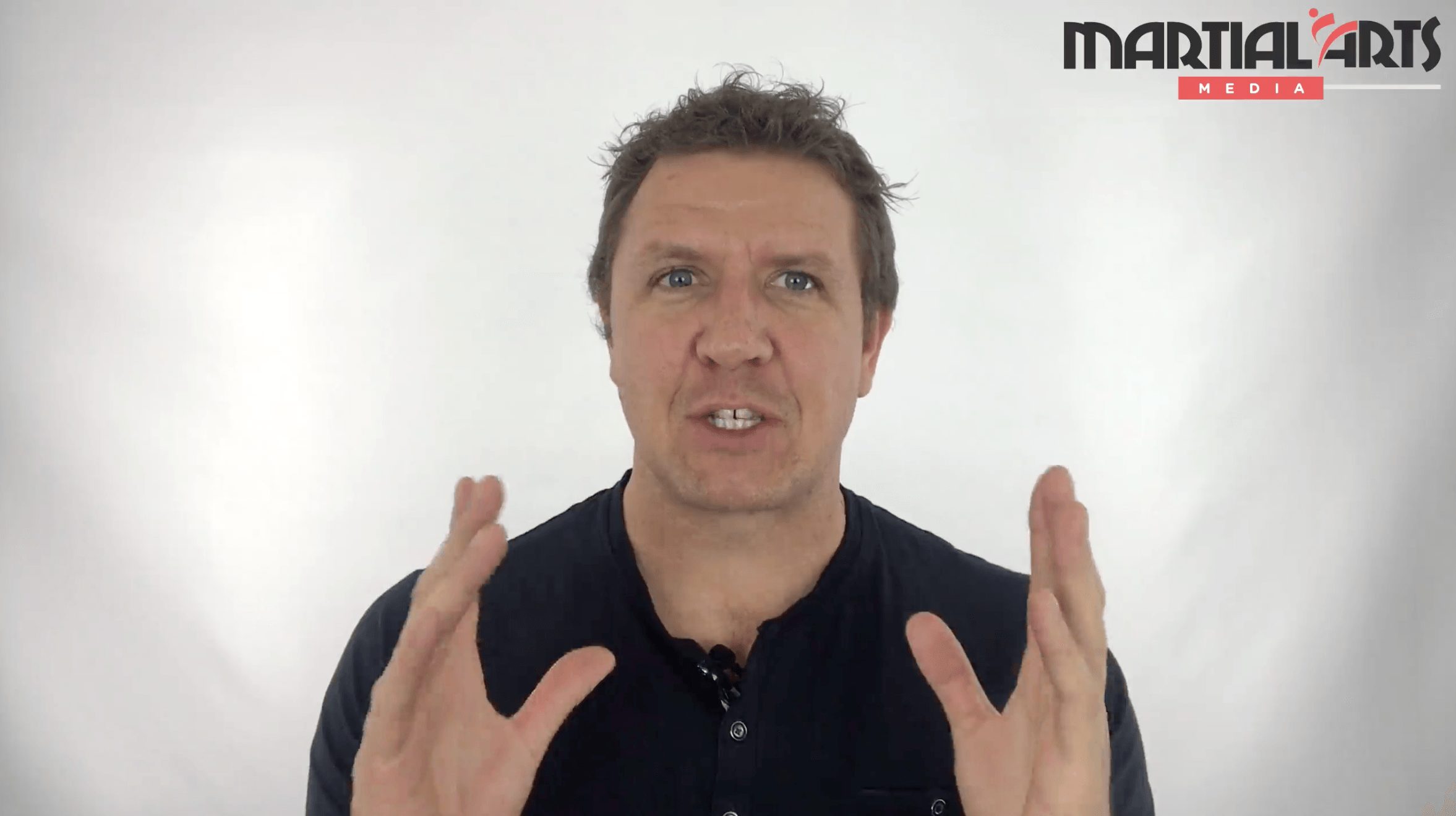
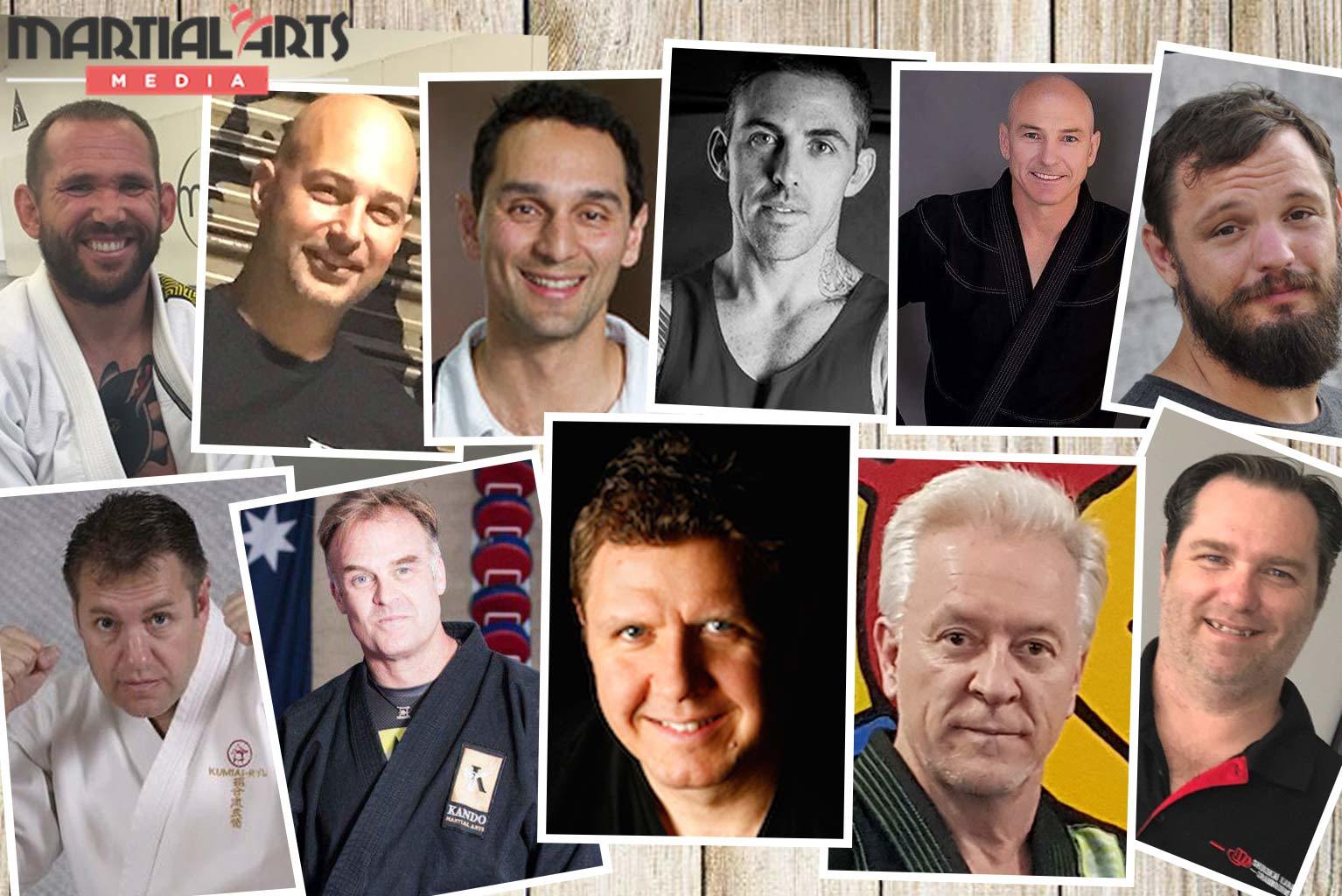
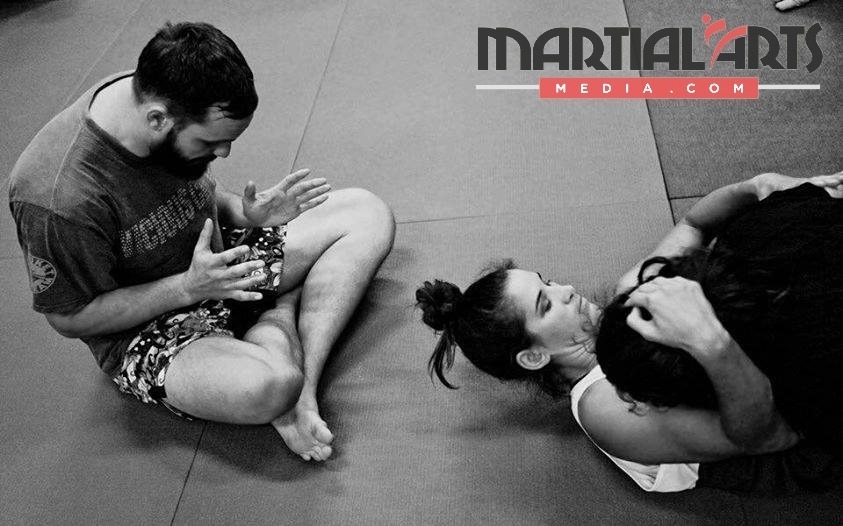



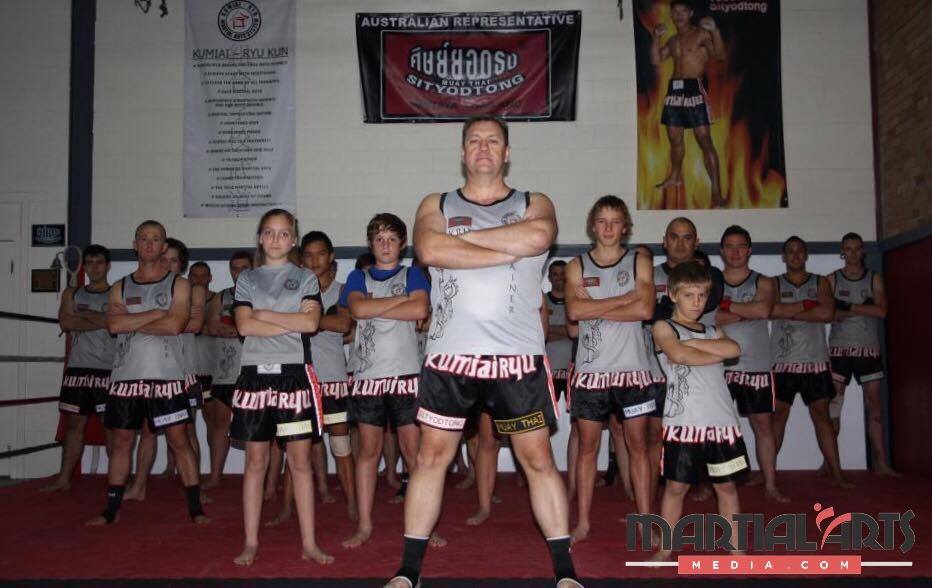


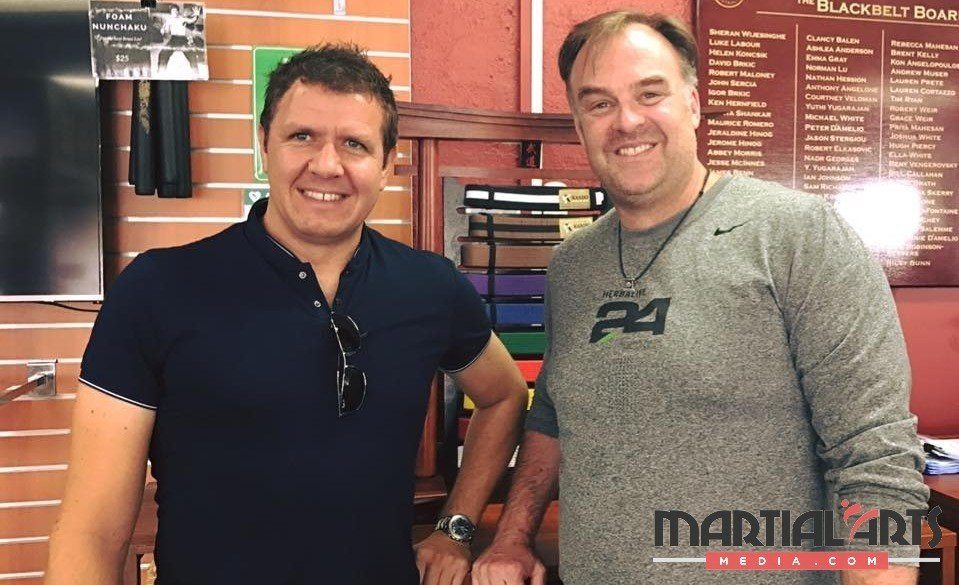
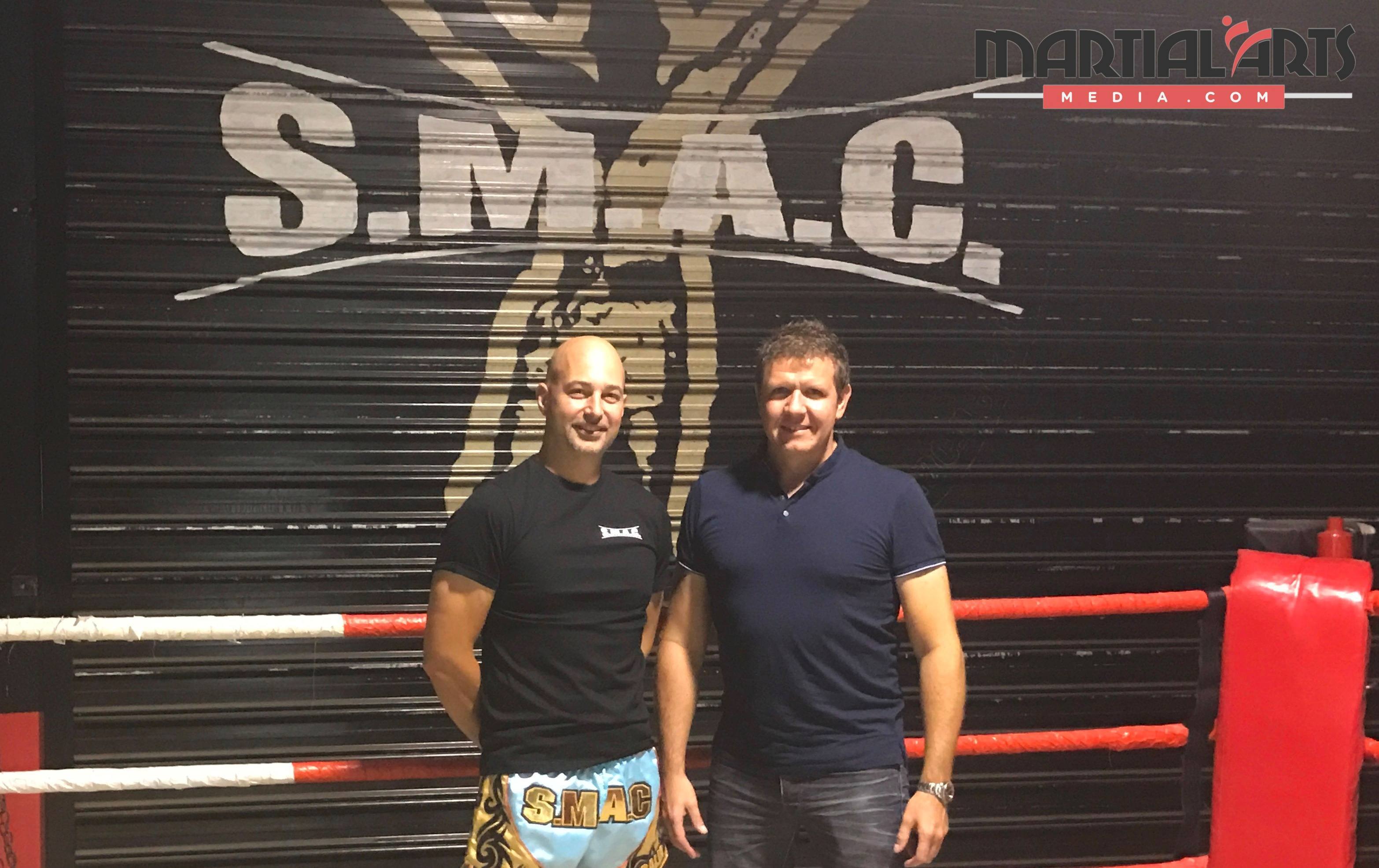
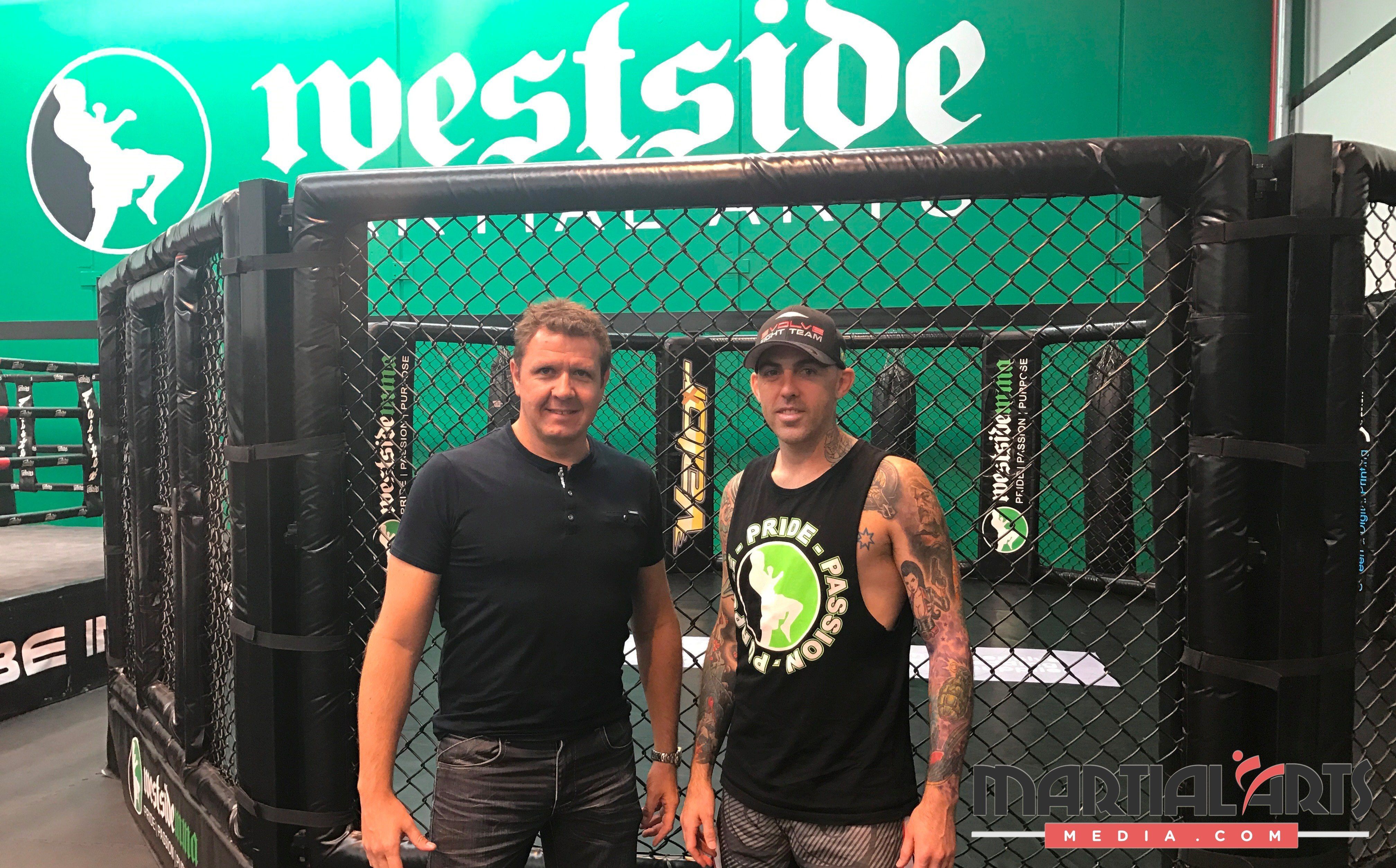




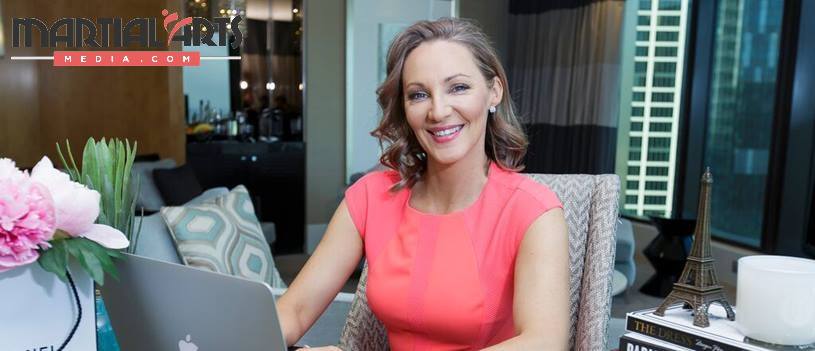





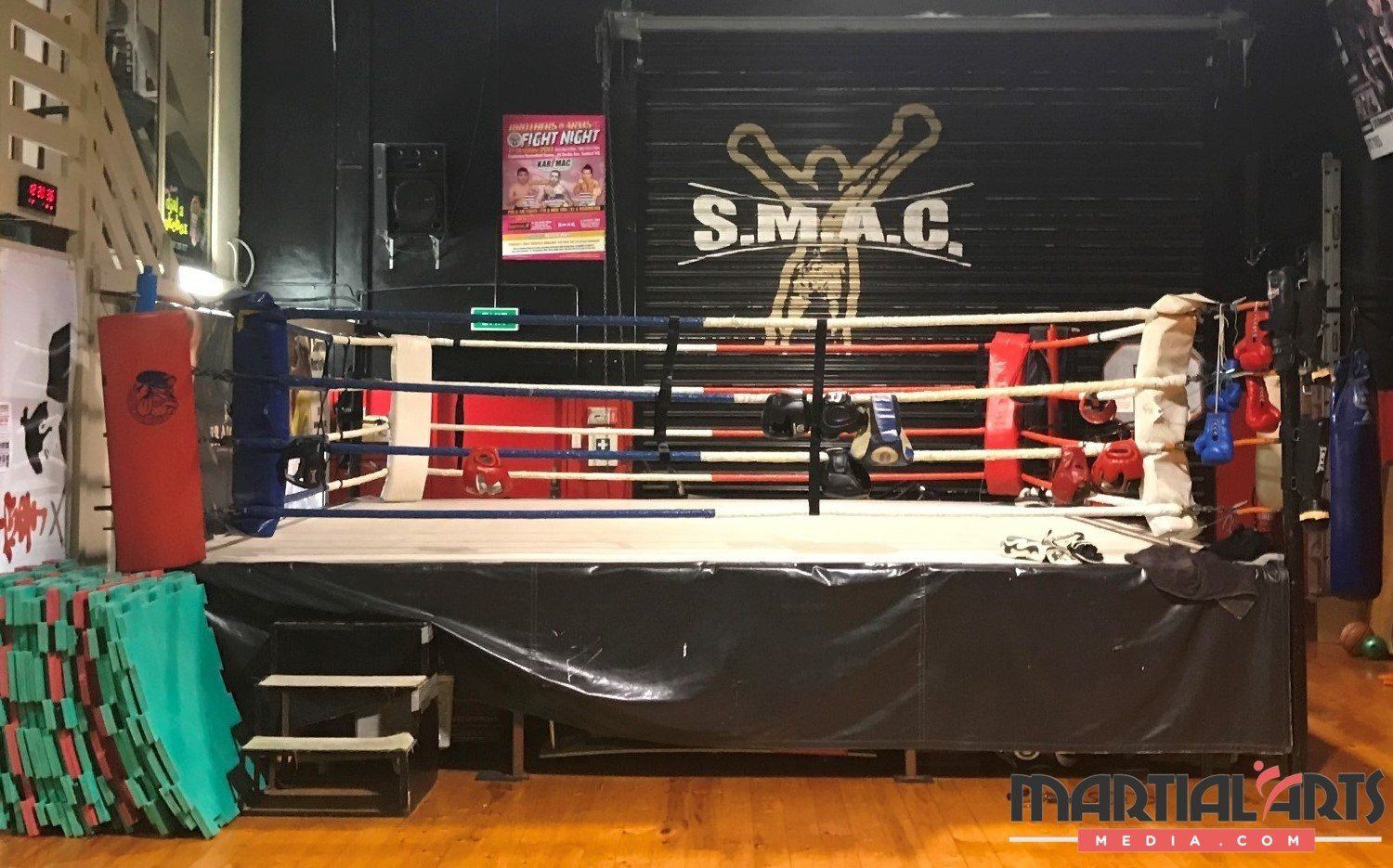
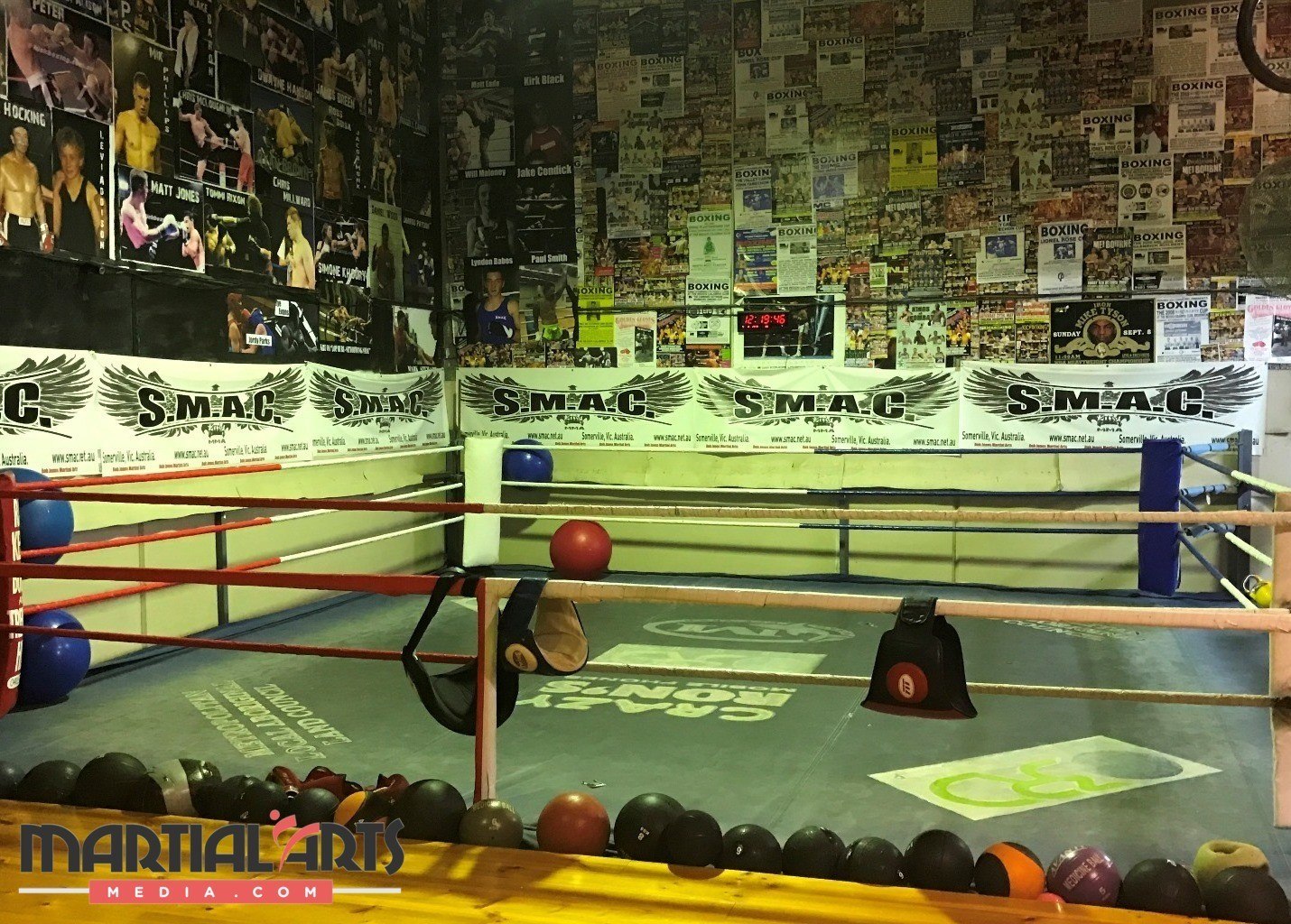
 MATT
MATT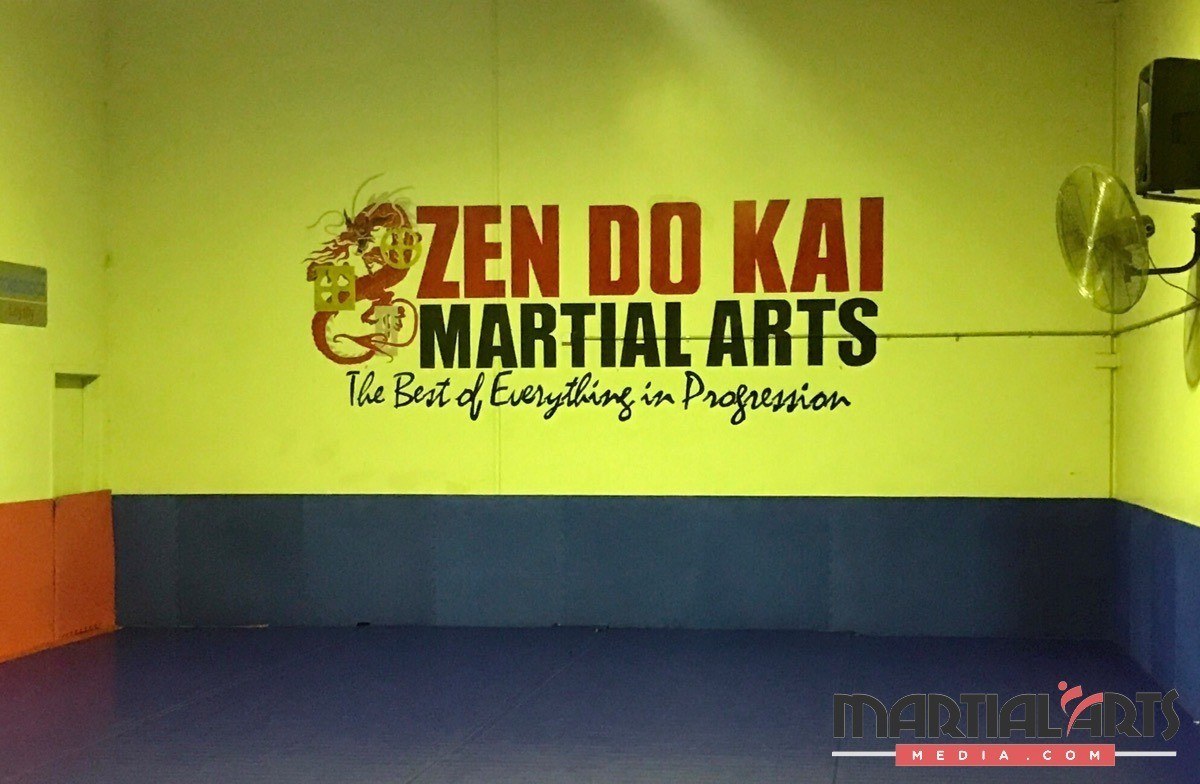 MATT
MATT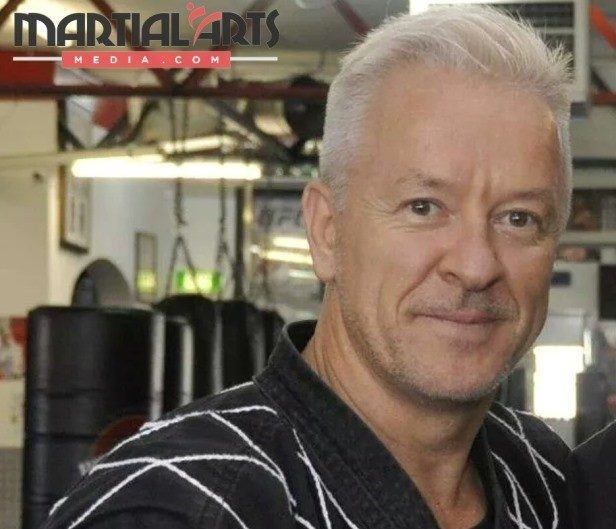

 FARI:
FARI: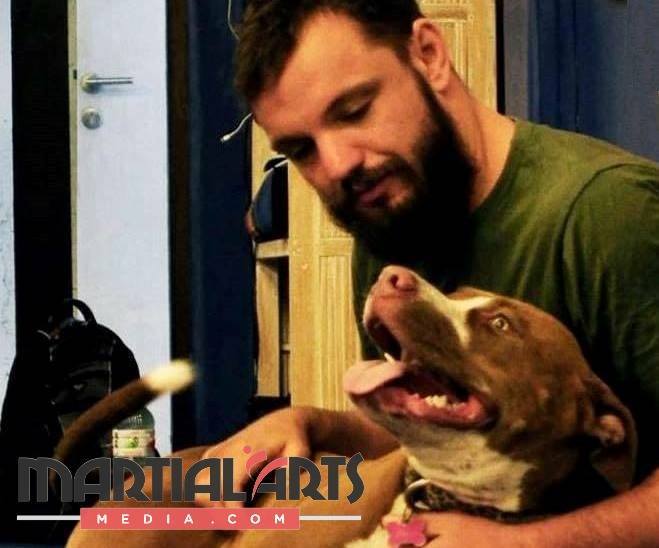
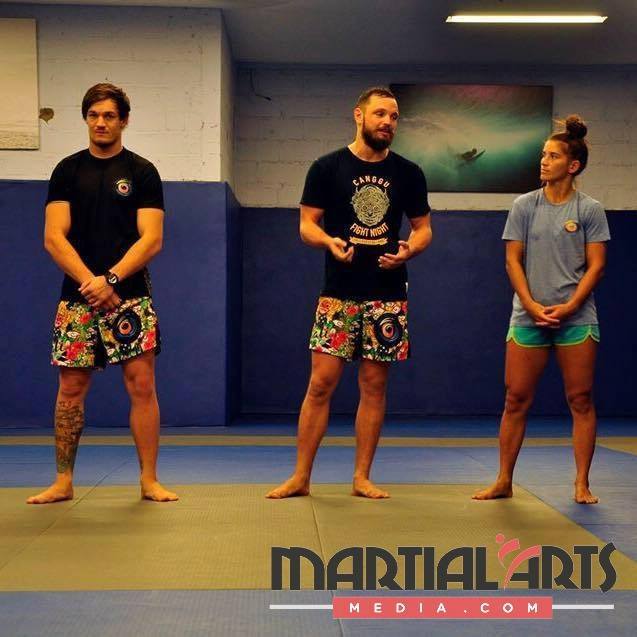
 JUSTIN:
JUSTIN: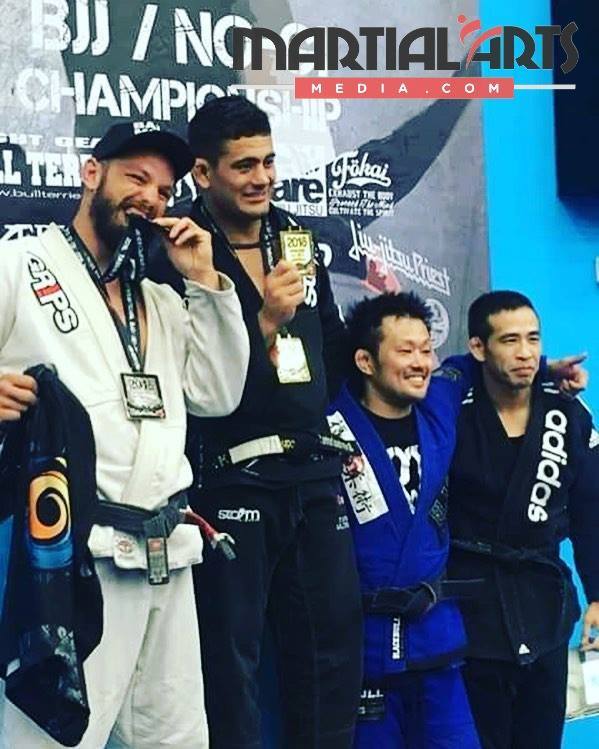 JUSTIN:
JUSTIN: JUSTIN:
JUSTIN: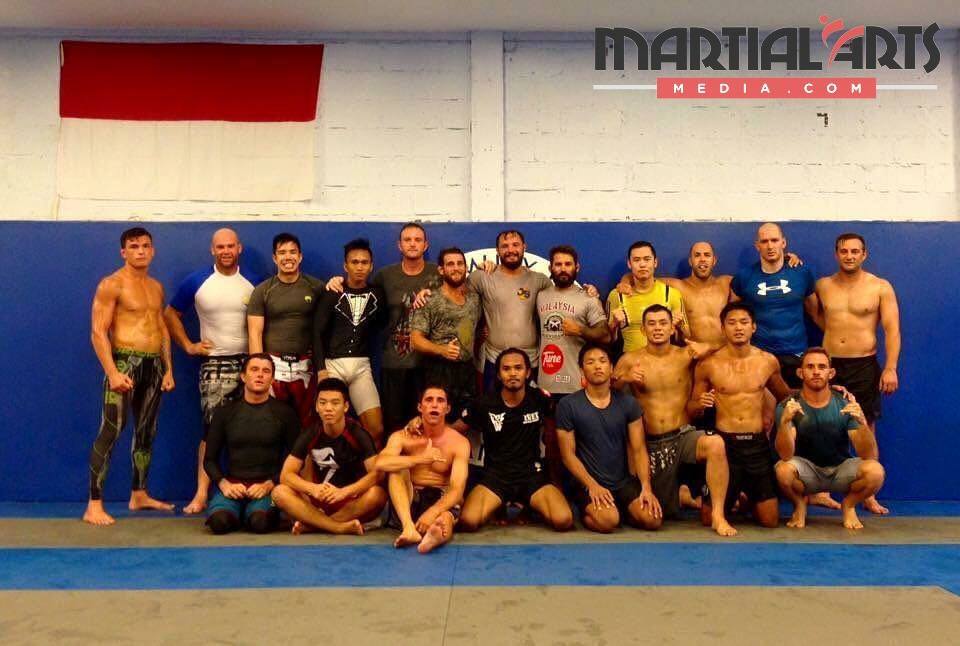
 GEORGE:
GEORGE:

